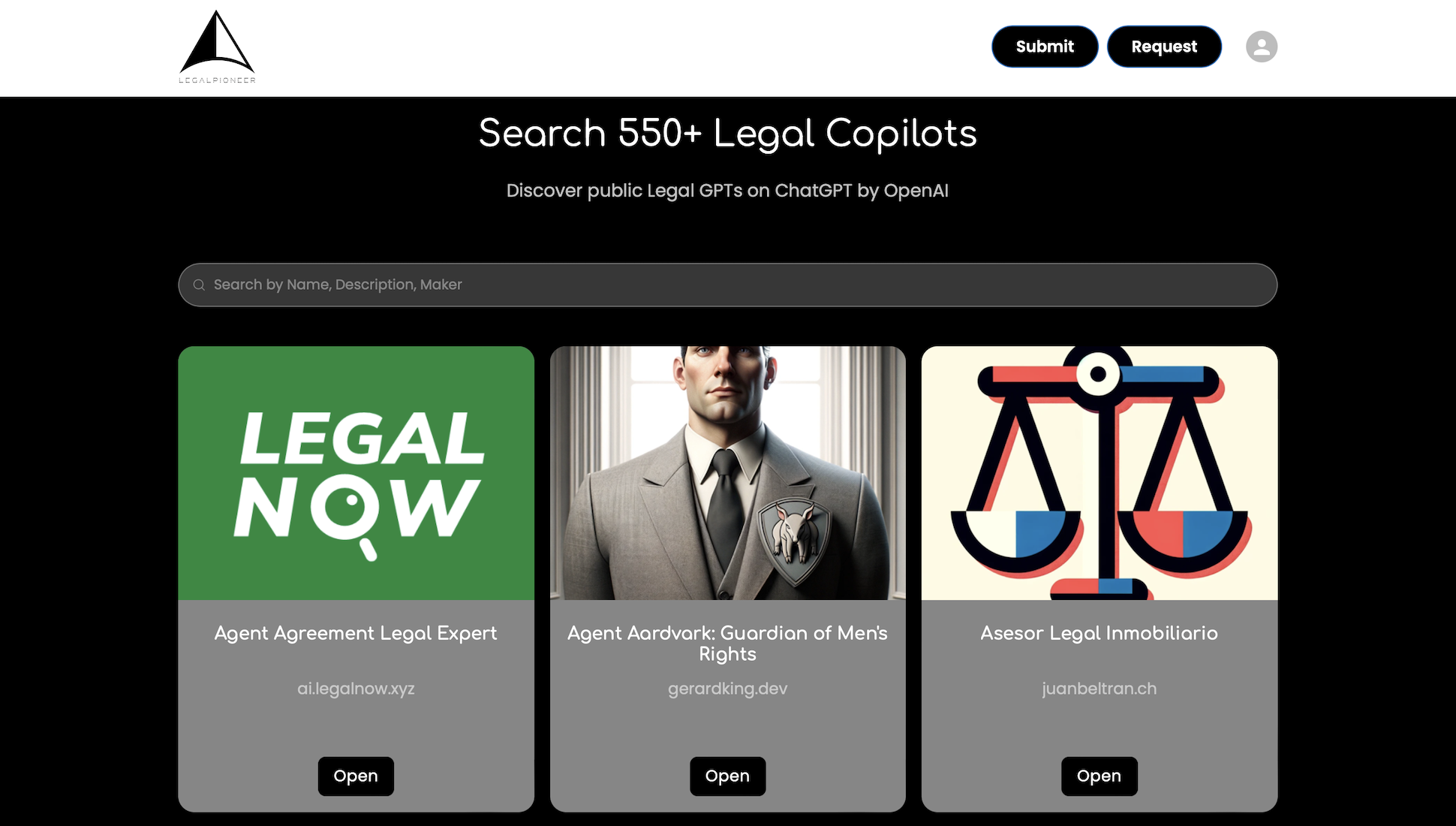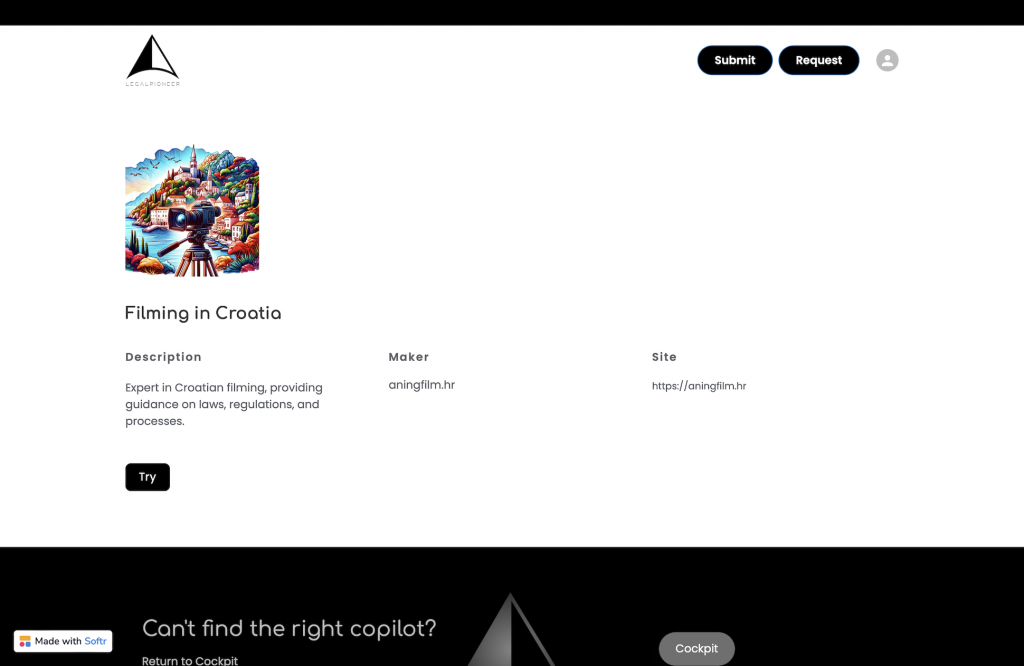On Nov. 6, OpenAI introduced the ability for any user with a ChatGPT Plus or Enterprise account to create their own custom versions of ChatGPT, which OpenAI calls GPTs. “GPTs are a new way for anyone to create a tailored version of ChatGPT to be more helpful in their daily life, at specific tasks, at work, or at home—and then share that creation with others,” the company said.
Initially, OpenAI said it would soon also roll out the GPT Store, to allow GPTs to be shared publicly. Later, it delayed the launch of the store until sometime next year.
But if you are looking for a law-related GPT, a new site can help. Raymond Blyd, the Amsterdam-based cofounder of Legalpioneer, a site that lists law-related companies, and CEO of Legalcomplex, a company that tracks investments and market data, has uncovered nearly 600 law-related GPTs and made them searchable on a new resource he calls Legalpioneer Copilot.
Blyd (who recently changed the spelling of his last name from Blijd) told me that the GPTs he has found cover a range of legal, regulatory and tax issues, and could be useful for academics, professionals and businesses.
The site allows anyone to search for GPTs by name, description, or topic. The search takes you to a description of the GPT on the Legalpioneer site, from which you can click through to try the GPT directly. (You will need a ChatGPT Plus subscription to use any of the GPTs, at a cost of $20 a month.)
Among the law-related GPTs you can find through the Legalpioneer site:
- Filming in Croatia, providing guidance on the laws governing film production in that country.
- Divorce Navigator, which describes itself as a guide for navigating divorce with legal emotional and practical support.
- CA Employment Lawyer GPT, which describes itself as, “Not legal advice — but a start.”
- Firearm Law Guilde, which says it is a “multilingual guide to U.S. gun laws, using real-time info for accuracy.”
- IP Master for Small Business in the USA, which claims it is “expert in answering intellectual property queries for small businesses in the USA.”
Of course, the fact that someone has created a GPT does not mean that anyone should rely on the GPT for legal advice. These GPTs provide little or no information on who created them or how. Some have a link to the creator’s website, but often that is not helpful.
The Divorce Navigator GPT, for example, was created by a legal web design firm. A number of GPTs were created by a company called LegalNOW, which says it helps users create legal documents using AI.
But, even with those provisos, the Legalpioneer Copilot is helpful for providing a way to find these GPTs and fascinating as a way to explore how users are taking advantage of the ability to create their own GPTs. (One user alone made over 100 legal GPTs, Blyd told me.)
Blyd said you can consider this site as like a RadioShack for building legal agents. “It gives ideas and parts of what to build and how,” he said.
As for the Legalpioneer Copilot, Blyd plans to continue to build it out. Among the features he plans to add are the ability to sort GPTs by countries, segments and areas, and translations of descriptions into English.
 Robert Ambrogi Blog
Robert Ambrogi Blog
